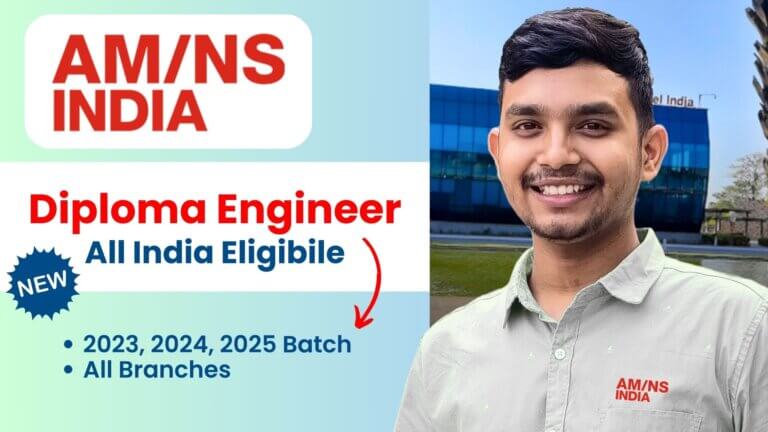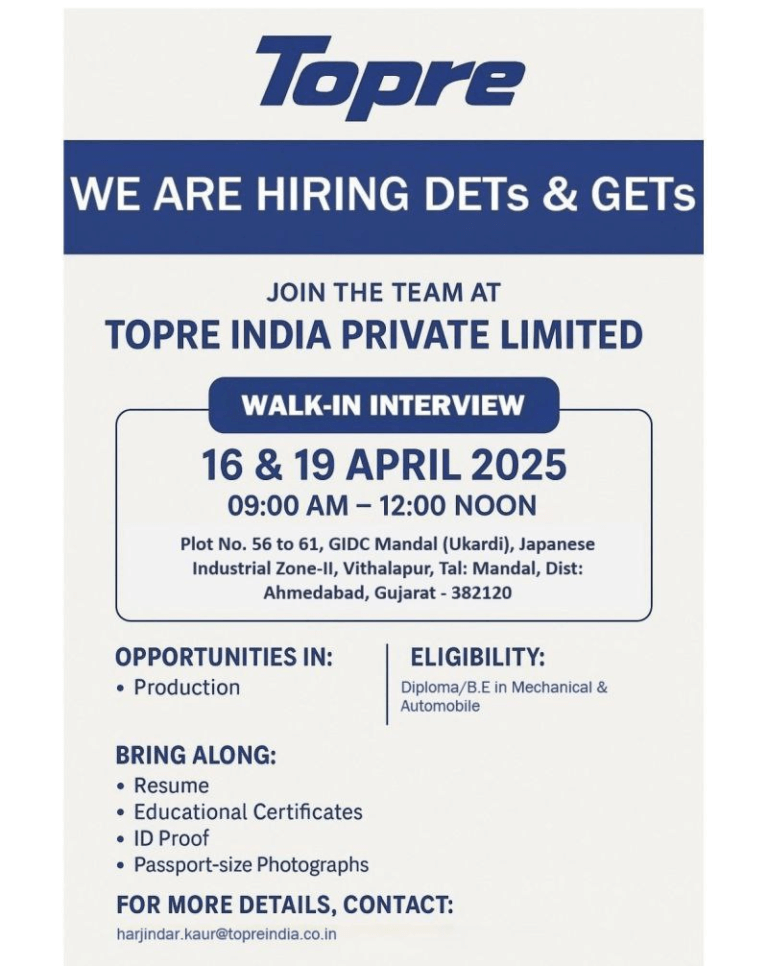Syllabus for JEEDEC
The Syllabus given below is from INFORMATION BROCHURE 2023 released by Jadavpur University for JEEDEC 2023. You can get references from it for your preparation.
JEEDEC Previous Year Question Papers – Free PDF Download
Jadavpur University 5yr B.tech Program for Working Professionals- Full Details
- The syllabus is different for different branches of engineering.
- The detailed syllabus of different branches are given below:
Electrical Engineering
JEEDEC Syllabus: 5 Years Part-Time Degree Course (Evening) Electrical Engineering, JU.
- Electrical Circuit & Network: Basic Concepts, Series and Parallel AC circuits, Series and Parallel resonance, AC and DC circuits analysis, Network Theorems, Transient in DC Circuit, Laplace Transform, Two port network
- Electrical Machines: Mechanism of Electro-Mechanical energy conversion, DC Generator and Motor, Single phase Transformer, Three Phase Transformers, Autotransformer, Scott Connection,
- Open Delta Connection, Three-Phase Induction Motor, Alternator, Synchronous Motor, Single phase motors, Special Motor.
- Transmission and Distribution of Power: Basics of Power Transmission, Layout, Transmission Line Components, Transmission Line Parameters, Underground Cables, Performance of Transmission Line, Extra High Voltage Transmission, Components of Distribution System, Substations.
- Switchgear and Protection: Necessity & functions, Circuit interrupting devices, Circuit breakers, Auto-reclosing, Protective Relaying, Over current relay, Directional Relay, Distance Protection Scheme, Differential Relay, Static over current relays, Generator protection, Transformer protection, Protection of Busbar& transmission line, Overvoltage Protection.
- Electrical Measuring Instruments: Fundamentals and Basic Requirements, Measurement of single phase and three phase Current, Voltage, Power and Energy, Measurement of Resistance, Single phase and three phase Power Factor Meter, Digital Multimeter, Sychronoscope. Instrument Transformer: CT and PT.
- Electrical Measurement & Control: Transducers: Types, Classification, Transducer for measurement of Temperature, Pressure, Velocity, Speed, displacement; Capacitive and Piezoelectric transducer, load cell, Tachometer, Electromagnetic and turbine flow meter; Signal conditioning: Concept, AC and DC signal conditioning,
- Instrumentation Amplifier, Filters, Digital instruments and Display Devices; Pilot Devices: Push Button, Limit Switch,
- Float Switch, Electromagnetic Relay, Pressure switch, Thermostats plugging switch, Proximity switch; Control System: Classification, Feedback control system, idea on stability, Control system components, Concept of transfer function, poles and zeroes, transfer function of first & second order system, time response characteristics of first and second order system to unit step excitation, Block diagram representation of control system, Stability concept, ON/OFF, P, PI, PD, PID controller.
- Utilization, Traction, Heating and Drives: Illumination: Terms Used in Illumination, Laws of Illumination, Different types of lamps, Electric Heating, Resistance Heating, Arc Heating, Induction Heating, Dielectric Heating, Electric Welding, Electric Drives, Electric Traction, Traction Mechanics, Traction Motors, Economic Aspects of Utilising Electrical Energy
- Power Plant Engineering: Basics of Power Generation, Thermal Power Stations, Nuclear Power Stations, Hydro Power Stations, Diesel Electric Power Stations, Gas Turbine Power Plants, Non-Conventional Energy Sources, Solar Energy, Wind Energy, Economics of Power Generation, Interconnected Power Systems.
- Basic Electronics: Semiconductor Diode, Zener Diode, Rectifiers & Filters, Bipolar Junction Transistor (BJT), Field effect transistor (JFET), Unijunction transistor (UJT), Biasing of BJT, Regulated Power Supply, Small Signal Amplifiers.
- Power Electronics & Drives: Thyristor (SCR), Switching & Timer Circuits, AC to DC Converter, Inverter, DC Chopper, DC & AC Drives, Uninterrupted power supply.
- Applied and Digital Electronics: Power Amplifiers, FET Amplifier, Operational Amplifier, Feedback Amplifiers & Oscillators, Boolean Algebra & Combinational Logic Circuits, Sequential Logic Circuits, Data Converters & Memory Devices.
- Microprocessor and microcontroller: Microprocessor Basics, Microprocessor Programming, Application of Microprocessor, Microcontroller Basics, 8051 addressing modes and instructions, 8051 interrupts, Application.
CIVIL ENGINEERING
JEEDEC Syllabus: 5 Years Part-Time Degree Course (Evening) Civil Engineering, JU.
Part A: Strength of Materials and Engineering Mechanics- 20 marks (10 questions)
Part B: Civil Engineering Subjects (80 Marks, 40 questions) comprising Surveying, Planning and Construction, Sanitary Engineering, Soil Mechanics, Roads and Railways.
Part – A: Applied Mechanics:
- Friction between solid bodies; equilibrium of rigid bodies; centre of mass and centre of gravity; work, power and energy; principle of virtual work. Direct and shear stresses, strain elasticity, Hooke’s law, Poisson’s ratio, Young’s modulus, modulus of rigidity and bulk modules, working stress, factor of safety.
- Structural elements, BM and SF diagrams theory of simple bending. distribution of bending stresses and shear stresses, Principal stresses and principal planes, Mohr’s circle, Moment of internal section modulus, radius of gyrations, and torsion of circular shafts.
- Use of simple column formula.
- Solution of determinate trusses.
- Fluid Mechanics – pressure at a point, Pascal’s law of pressure within a static fluid, buoyancy, stability of submerged and floating bodies; Steady and unsteady Row, uniform and nonuniform Row, laminar and turbulent Row. Reynolds number.
Part – B: General Civil Engineering:
- Surveying:
Surveying Correction for measured length by chain and tape. Field problems and their solutions, Compass Traversing. Closing error in com pass traverse and Its correction, Levelling. Cross – section Long section, measurement of areas, plane table surveying, Contouring. - Planning and Construction:
Brick bonding, types of ordinary foundations, shoring and timbering. D.P.C. Flooring. Plastering, Whitewashing. Skirting, Dado, Layout of water and sanitary lines In residential building. Water closets, intercepting chambers.
Connection of house drains to street sewers. - Irrigation:
Methods of Irrigation, the water requirement of crops, groundwater- well hydraulics, and Design of Irrigation canal systems. - Sanitary Engineering:
Sewers, sewer appurtenances, different systems of sewerage, sewage BOO of sewage, Aerobic and Anaerobic process fundamentals of septic tanks, activated sludge and trickling niters. Demand for water, potable water, source of water. development of groundwater sources, and impurities in natural waters. waterworks Intake, slow sand filter, rapid sand filters. disinfection of public water supplies, causes and removal of hardness. - Soil Mechanics:
Formation, identification and classification of soils. Three-phase system Water content, void ratio, degree of saturation, Bulk density etc. Limits of consistency. Total and effective stress. - Roads and Railways:
Roads and Railways Survey. Construction and maintenance, Road permanent way structures with formation, Road and Railway crossings road Intersections and Railway Track connections of various types of road signs, Railway signals, Railway yards, road metals and their specifications, and parts of Culverts.
Mechanical Engineering
JEEDEC Syllabus: 5 Years Part-Time Degree Course (Evening) Mechanical Engineering, JU.
1. Applied Mechanics and Machine Design:
| Sl.No. | Subject | Course Content |
| 1. | Engineering Mechanics | Basic engineering mechanics, statics, vectors, kinematics and kinetics, work-power-energy. |
| 2. | Strength of Materials | Stress-Strain relations, bending & shear stress, deflection of beam, torsion, column & struts, Spring. |
| 3. | Theory of Machines | Kinematic pair, links, mechanisms, inversions, velocity and acceleration analysis, Cam follower, Power Transmission: Belt, Gear, Flywheel, Governor, Brakes, Dynamometers, Clutch, Balancing and Vibration. |
| 4. | Design of Machines Elements | Introduction, Static & Dynamic loads, Theories of Failure, Cotter Joint, Knuckle Joint, Shafts, Keys and Couplings, Spur Gears, Pulley, Fasteners, Bearings. |
| 5. | Mechanical Engineering Drawing | Projection, orthographic views, Development of Surfaces, Intersection of Solids, Drawing conventions, Limit-Fit-Tolerances-Surface Roughness, Sectional views, Assembly drawing, Part Drawing and detailing. AutoCAD basics. |
2. Fluid Mechanics-Hydraulics and Heat Power:
| Sl.No. | Subject | Course Content |
| 1. | Fluid Mechanics | Properties of Fluid, Fluid pressure and pressure Measurement, Types of Fluid Flow, Flow Through Pipes. |
| 2. | Hydraulic Machines | Impact of Jets, Turbines, Centrifugal pumps, Reciprocating Pumps. |
| 3. | Hydraulic System | Components of Fluid Power Systems (pump/compressor, pipe fittings, etc. |
| 4. | Thermodynamics | Laws of Thermodynamics, Properties of Perfect Gas, Properties of Steam, Carnot Gas Power Cycle and Carnot Vapour Power Cycle, Rankine Cycle. |
| 5. | Boilers & Steam Condenser | Boiler types, accessories & mountings, Performance, Draught, feed water treatment, high-pressure boiler. Condenser Type, Working Principle, Efficiency, Leakage, Draught and Cooling Towers. |
| 6. | Refrigeration | Measurements of refrigeration, Refrigerant, Air Refrigeration cycles, Vapour Compression Refrigeration, Applications. |
| 7. | IC Engine | Air-standard cycles, 2-stroke & 4-stroke engines, Valve Timing Diagram, Scavenging, Preignition, Detonation, Supercharging, Turbo-charging, Simple Carburettor, M.P.F.I. and Fuel Injection. |
| 8. | Gas Turbine | Gas Turbine Cycle & Processes, Thermal Efficiency, Classification and Applications, Closed Cycle & Open Cycle Gas |
| 9. | Hydraulic Turbines: | Water Turbines, Velocity Diagrams, Work done, Power and Efficiency of turbine. |
| 10. | Power Plant Engineering | Steam, Nuclear, Gas turbine – power plant, non-conventional power. |
3. Production:
| Sl.No. | Subject | Course Content |
| 1. | Manufacturing Processes | Classification of manufacturing processes – Shaping process, Joining & Finishing process, Casting, Forging, Rolling & Extrusion, Machine Tools – Lathe, Drilling, Milling, Welding, Shaping. |
| 2. | Mechanical Engineering Materials | Engineering Materials, Crystal Structures, Phase Transformation & Heat treatment, Surface hardening, Alloys, Polymers and Composites. |
| 3. | Jigs Fixtures, CNC | Jig and fixture, principle of location. Concept of NC & CNC, Advantages & Disadvantages. |
| 4. | Metal Cutting | Metal cutting, Tool wear, Machinability, Tool materials, Cutting Tool Geometry. |
| 5. | Industrial Management | Types of Business, Management Principles, Organizational Structure, Human Resource, Materials Management, Safety Engineering |
| 6. | Material Handling | Material handling Systems & Selection, Hoisting & Conveying Machinery, Surface Transportation Equipment. |
| 7. | Production Management | Production System, Plant location, Plant layout, Process Planning, Production Planning and Control, Work Study, Maintenance of Machine Tools, and Quality Control. |


